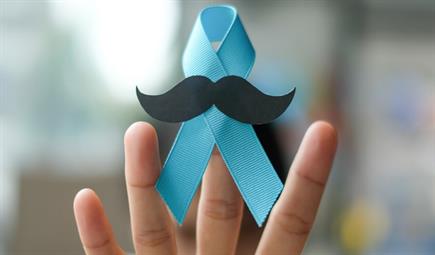Our Doctors
Meet all the doctors from Cleveland Clinic Abu Dhabi.
View Doctors.png?h=255&w=435&la=en&hash=17CC760DACBDCA05F9F032A9B278EBC5)
A change in bathroom habits might be caused by an enlarged prostate

All too often, men put frequent visits to the bathroom down to old age. Just like the appearance of fine lines and grey hairs, they expect less control over their bladder as they get older. But when the urge to go starts interrupting sleep, it’s time to see a doctor.
Increasing nighttime trips to the bathroom may be an early sign of an enlarged prostate. Many men put up with a change in toilet habits for years before getting it checked out. But doctors warn that increasing toilet trips could indicate an issue with the prostate that needs to be treated.
Enlarged prostate
There are several names given to this problem; enlarged prostate, benign prostate hyperplasia, or simply BPH. It is the most common prostate complaint in men over 50 and as age increases, it becomes more and more common.
BPH occurs when the prostate becomes enlarged and blocks the flow of urine from the bladder to the urethra. The bladder has to work harder to push urine out and eventually, its muscles thicken and become sensitive – so much so that it contracts even when it contains the smallest amount of urine and hence the feeling that you need to urinate frequently. Eventually, the urethra becomes so blocked that the bladder cannot empty properly.
Signs of BPH
If not treated, BPH can cause complications. This can include urinary tract infections, bladder stones, incontinence, and acute urinary retention. These can be serious conditions, so any change in bladder habits should always be discussed with your doctor.
A diagnosis
The first thing a doctor will do is rule out anything more serious, such as prostate cancer. They will then assess the severity of the BPH. If side effects are mild, doctors advise monitoring it regularly before starting treatment. But if symptoms start affecting quality of life, and causing complications, it is time to start treatment.
Treatment options
There are a wide range of treatment options available, ranging from medication to surgery. Your doctor will decide which is right for you based on the severity of your individual case. Thankfully, modern medicine offers a wide range of minimally invasive therapies which can be extremely effective, with minimal side effects.
Medication
There are a range of drugs available to treat BPH, which act by shrinking the prostate or preventing it from growing further. They are usually effective with few side-effects, so are a good option for milder cases.
Minimally invasive treatment
If medication isn’t working, there are a range of treatments that can be performed within the doctor’s office that are quick and extremely effective. Transurethral resection of the prostate (TURP) is one option, which involves removing parts of the prostate from inside the urethra using either electro-cutting or a laser for resection, or vaporization of the enlarged parts of the prostate.
A revolutionary new technique to treat enlarged prostate is now being offered at Cleveland Clinic Abu Dhabi. The Rezum system uses sterile water vapor (steam) to deliver targeted, controlled doses of thermal energy directly to the prostate to reduce the blockage. The quick, simple procedure has been shown to reduce symptoms of BPH drastically and effectively in most patients.
Surgery
When the prostate is very enlarged, surgery may be the only option. It can involve removing tissue that is blocking the urethra by cutting it away, destroying it with a laser, or making cuts in the tissue to reduce pressure.
Remember, changes in bathroom habits are expected as we age, but that doesn’t mean they should be ignored. Talk to your doctor, as an enlarged prostate should always be treated.
.png)
Prostate cancer is a common cancer among men in the UAE. With no symptoms in the earliest stages...
Read Articles
Prostate Cancer Myth Busting: Prostate cancer is the second most common cancer diagnosed in men...
Read Articles
All you need to know about the cancer that men don’t like to talk about.
Read Articles